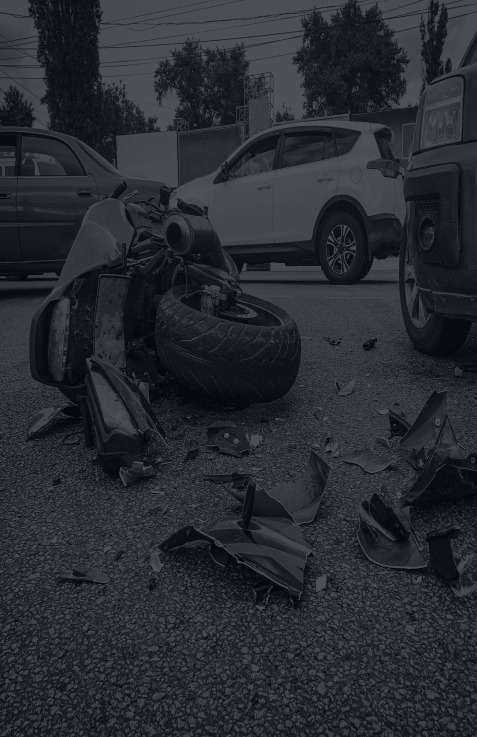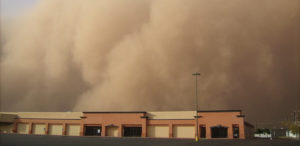Infographic: Surviving a dust storm: Do you know what to…
Doug Zanes shares advice on surviving a dust storm. Giant dust storms, popularly called “haboobs,” make for spectacular photos that everyone has seen shared o...
READ MORE![]() Contact Us (866) 499-8989
Contact Us (866) 499-8989



When you hire us, you're adding unmatched experience to your team, ensuring you get the best possible outcome.
Our firm maintains an impressive 99% win rate, even while accepting difficult cases other law firms have turned away.
We are not afraid of trial, and insurance companies know this. If it’s in your best interest, we are always trial ready.

No one ever expects to be involved in a car accident, suffer an injury, or need to begin looking for a Phoenix car accident attorney.

With the help of a Phoenix wrongful death lawyer, you should receive compensation for your losses.

When you are hurt in an accident, our Phoenix slip and fall lawyers are only a phone call away.

Our motorcycle accident lawyers in Phoenix understand how dangerous it can be to ride a bike. So much so that we have created safety articles for years.





Since these gasses are very dangerous, there are preventative measures that employers must take to ensure the safety of all workers and visitors on the job site. Suppose they fail to take these actions, it results in injury and death. Failure to follow procedures also means the employer is negligent and must be held accountable for the injury.
All cylinders must be secured upright and be in a position where they cannot move. The cylinders must stay cool, and anyone who handles them should ensure no hand tools come into direct contact with the cylinder. The biggest mistake is to heat the cylinder, which construction workers should avoid at all costs.
While Arizona is hot by nature, there are methods to keep these cylinders cool and away from the heat.
Employers must instruct workers how to handle the cylinders and provide protective gear to be safe. You must wear safety goggles, gloves, and hard-toed shoes near a compressed gas cylinder. The shoes are because these cylinders can roll and squish a person’s foot.
Inspecting the cylinders for corrosion, dents, or marks is essential because these are signs of a hazard present. The valve cap is another critical element to check. When it is time to remove the cap, there must be another check for odors, hissing sounds, and plumes.
If these are present, the danger is near.
When storing the containers, they must stay in a fire-resistant area with ventilation; the room must be cool and dry with a fire extinguisher nearby. The worst thing anyone on a job site can do is store the vessels near a fire or a heat source. While workers are used to seeing these cylinders, they should never become complacent because they are hazardous.
Employers must ensure there are adequate markings warning everyone that there is gas present and it can explode. Employers, property owners, and subcontractors are responsible for keeping everyone safe in the workplace.
While compressed gas is dangerous, it is used to power equipment, and many workers and others are accustomed to seeing these cylinders around. Contractors must have an emergency response plan for fire from compressed gas. Employers will need to take all of these measures and ensure that construction workers around or handling the compressed gas are aware of the precautions and dangers.
OSHA has documented compressed gas injuries since the early 2000s and found that many accidents result in finger amputations or death. Compressed gas is unpredictable, and there is no way to know what will happen next when there is an accident. The most common compressed gas injuries Arizona construction workers face are:
When the cylinder becomes a rocket or projectile, additional injuries like head trauma will occur. For those who survive these explosions, medical care will be extensive and can require years of treatment. Victims will not return to their previous employment and can suffer lifelong complications from toxic exposure.
If you are an Arizona construction worker who suffers an injury from a compressed gas accident, you will likely file a worker’s compensation claim. However, you may be able to file a personal injury lawsuit instead. The two processes will vary slightly, but the goal is to get you monetary recovery for your injuries and ongoing care.
Workers’ compensation claims do not require construction workers to prove fault, but there are several restrictions regarding obtaining high compensation amounts. Sometimes worker’s compensation claims are not enough to cover your losses, and you need additional assistance. The employer can only pay for your losses through worker’s compensation.
However, if there is a third party who bears responsibility for causing the accident, you can file a personal injury lawsuit against them. The best example is if the company that constructed the compressed gas cylinder was negligent and caused an explosion.
There are significant losses and injuries from a compressed gas accident. While your only concern is to get better physically and back to work, Zanes Law is focused on protecting your legal rights to compensation. Your life will never be the same after a compressed gas accident.
You need compensation that reflects that. Enlist the help of a Phoenix compressed gas injuries lawyer today.

Doug Zanes shares advice on surviving a dust storm. Giant dust storms, popularly called “haboobs,” make for spectacular photos that everyone has seen shared o...
READ MORE
As a Tucson lawmaker proposes raising liability coverage required for motorists, personal injury attorneys at Zanes Law remind drivers to explore all of their options aft...
READ MORE
We are excited to announce that we have officially launched the Zanes Law Personal Injury Legal Tips podcast, featuring advice from Zanes Law owner and responsible attorn...
READ MORE